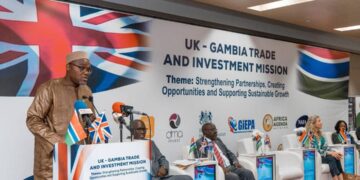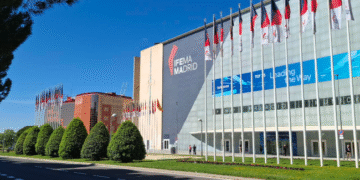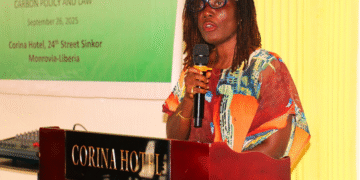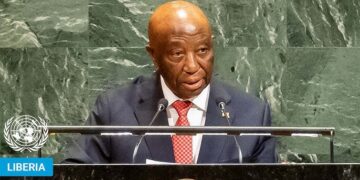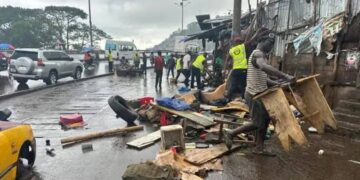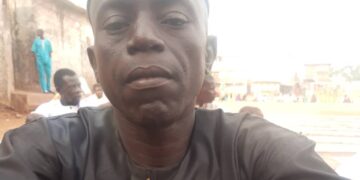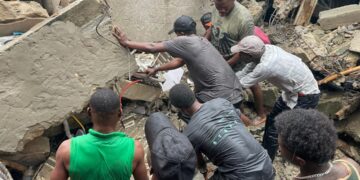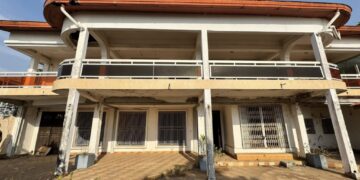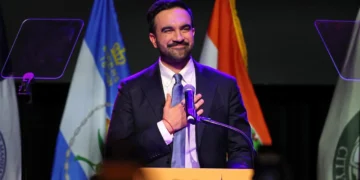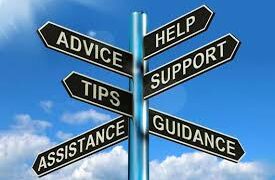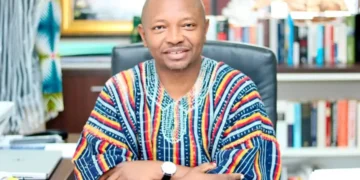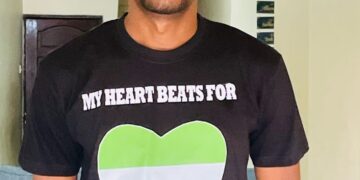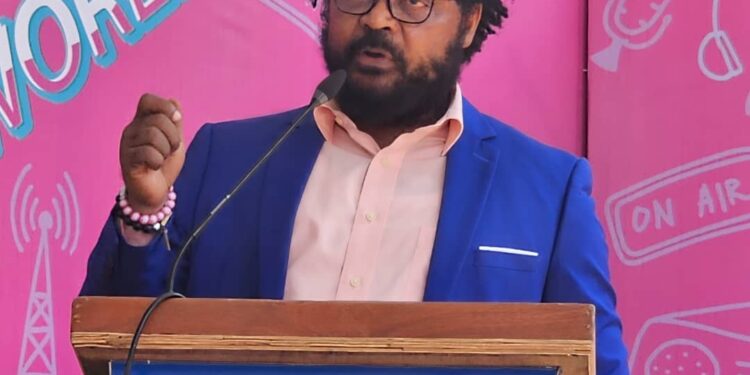RADIO: A Century of Giving Voice to the Voiceless
Statement by SLAJ President, Ahmed Sahid Nasralla, marking World Radio Day 2024 and delivered at Africell’s World Radio Day Commemoration- Official Signing of Africell Support to 50 Radio Stations Across Sierra Leone.
Date: Tuesday, 13th February 2024 | Venue: Africell Headquarters, Wilerforce Village, F/Town | Time: 12 pm
Opening courtesies…
I am honored and excited to be here as President of SLAJ to deliver a statement commemorating World Radio Day 2024 with the official signing of Africell support to 50 radio stations, including community radio stations, across Sierra Leone.
This is the perfect occasion to deliver my annual World Radio Day 2024 statement marking the day, and I want to start by thanking and commending Africell for this timely and much-needed support. For us, this is a continuation of the Company’s support to radio stations in SL with direct cash and power supply, especially community radio stations in rural communities, for the past 10 years or so.
And in the context of the current economic situation, the Africell support is very timely. To say that radio stations are struggling is an understatement. Radio stations in SL, especially community radio stations, are faced with a lot of challenges. Lack of financial sustainability means that many radio stations struggle to secure operations funding, procure the right equipment, pay staff salaries, and pay annual license fees.
Lack of technical expertise and resources impedes the maintenance and upgrading of broadcasting equipment.
Inadequate infrastructure and frequent power outages disrupt broadcasting schedules and affect signal quality.
With the proliferation of bigger and well-resourced media platforms, including digital and social media, radio stations face strong competition for audience attention and advertising revenue.
According to the Independent Media Commission (IMC), for example, many community radio stations have been hijacked by individuals, mostly with political leanings. The governance structures are not functioning. Lack of community support undermines community ownership.
Addressing these challenges requires strategic collaborative efforts from stakeholders, including the government and its agencies, NGOs, donors, the private sector, and the communities themselves, to ensure the sustainability and effectiveness of community radio stations in Sierra Leone. This is imperative as the majority of the population depends on radio for information. In my recent community engagement in the Western Urban and Rural areas, under our ongoing National Democratic Institute (NDI)-funded project on combating disinformation, the majority of the people, including youth, say radio is their main source of getting information about governance and social issues.
Indeed, radio remains the most trusted voice in this era of a plethora of communication channels/outlets and widespread disinformation, fake news, and hate speeches.
Africell’s support is one aspect, there are other areas to be considered for holistic growth and development of radio stations in SL.
So as we join the rest of the world to commemorate World Radio Day, we want to pay tribute to the impeccable history of radio and the powerful and inspiring radio voices that have blazed the trail for generations. It is exactly 100 years since radio as a rediffusion service was introduced in Sierra Leone in 1934, the first in West Africa and the third in the continent following South Africa and Kenya, respectively. From rediffusion service to Transmitter to the Transistor (Medium Wave- Western Area) to Shortwave (the Provinces) to FM later in the 1990s to digital in the 2000s, radio has not only continued to prove itself as very resilient and adaptable irrespective of the technology but also a vital medium for information dissemination, education, entertainment, and participatory democracy.
Today, let us acknowledge those early voices in radio in SL that have inspired generations of broadcasters. The voices of:
1. John Akar
2. Arita Awuta Coker
3. Alex During
4. Antonia Tucker
5. Hannah Neale ( Nee Bright Taylor)
6. Euphemia Mackay
7. Olivia Neville
8. Sylvester Rowe
9. John Davies
10. Kasho Wellington
11. Terrence Terry
12. Dwight Neale
13. George Treason Roberts
14. Ken Millar
15. Sama Lengor
16. Reginald George-Williams
17. Emmanuel Younge
18. Tobangay Sorie Max Kanu
19. Gipu Felix George
20. Coulson Thomas-Bassir
21. Patricia Macaulay
22. Euphemia Mackay
23. Kasho Wellington
24. Chris During
25. Albert Rogers
26. Dennis Smith
27. Francis Gabbidon
28. Theodore Dougan
29. Freddie Jones
30. Jonathan Fitz-John
31. Veronica Wilson
32. Hilton Fyle
33. Josephine Hazeley
34. Shefumi Swill
35. Victor Sylver
36. Mohamed Dabo
37. Balogun Porter
38. Abdul Sesay
39. Adam Saio Kamara
40. Dr. Abubakarr Kargbo
41. Mohamed Alemby-Cole
42. Royston Wright
43. Rpland Buck
44. Mohamed Jaward Tunis
45. Joseph Findlay
46. Patricia Macauley
47. John Sorboh Greene
48. George T. Roberts
49. Chris During
50. Oni Gabiddon
51. Violetta Luke-Decker
52. Agatha Lewis (now Agatha Kamara)
53. Francis Gabbidon
54. Gipu Felix-George
55. Babatunde Roland May
56. Gina Banda Thomas
57. Cyril Juxon-Smith, to name some of them.
Let us also pay tribute to the role of radio during our war years, the role of Radio Democracy 98.1 in the restoration of democratic rule in SL; the role of radio in democratic national elections, especially the Independent Radio Network; the role of radio in national health emergencies such as Ebola and COVID-19; the role of radio in education and entertainment.
On this World Radio Day, let us reflect on the enduring significance of radio as a democratic tool. Radio, with its widespread accessibility and inclusive nature, serves as a powerful platform for democratic discourse and civic engagement. It transcends socio-economic barriers, providing a voice to the voiceless and a platform for diverse perspectives.
In a world increasingly interconnected yet often divided, radio fosters dialogue, facilitates the exchange of ideas, and promotes informed citizenship. It empowers communities, enabling them to articulate their needs, challenge injustices, and participate actively in the democratic process.
As we celebrate World Radio Day, let us acknowledge the pivotal role radio plays in upholding the principles of democracy. Let us reaffirm our commitment to supporting and preserving this vital medium, ensuring it continues to be a beacon of democracy, fostering unity and understanding in our society.
The future of radio remains in our collective efforts to constantly address its challenges. As we embark on this journey to reinforce the foundation of radio stations in SL, let us renew our commitment to amplifying voices, fostering inclusivity, and leveraging the power of radio to build bridges in our communities.
Together, let us ensure that the airwaves continue to resonate with diverse perspectives, empowering communities, enriching lives, and promoting peace and national cohesion.
Happy World Radio Day 2024!
I thank you.



